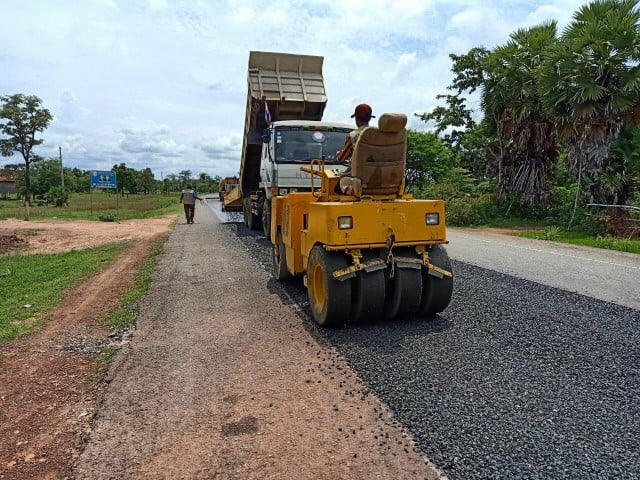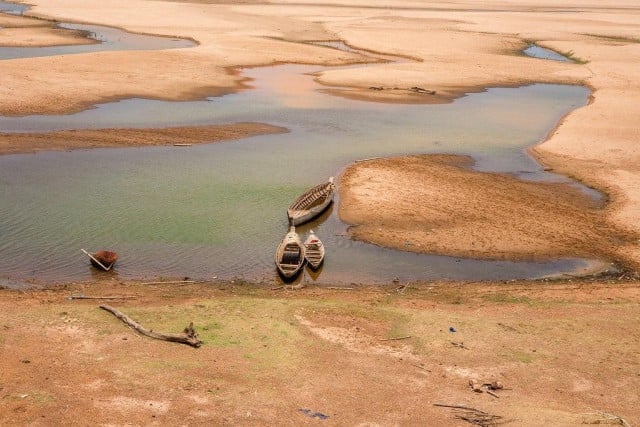Cambodia Obtains a $100 Million Loan from the World Bank to Improve the Rural Road Network

- Phoung Vantha
- July 17, 2020 9:55 AM
The goal is to ensure rural communities access to essential services year round, the World Bank says
PHNOM PENH—Cambodia will receive a $ 100 million loan from the World Bank for the country’s climate-resilient road project aimed at improving access to basic services and economic opportunities in rural areas.
According to a World Bank's press release on July 16, the World Bank’s Board of Executive Directors has approved $100 million credit from the International Development Association for the Cambodia Road Connectivity Improvement Project.
The money is to be used for the project’s targeted areas that include Kampong Cham, Tboung Khmum and Kratie provinces whose population exceeds 2 million people with 80 percent of them living in rural areas.
“Access to health and school facilities and moving goods to markets, in particular during the rainy season, has posted great challenges for Cambodian people in rural areas,” said Inguna Dobraja, World Bank country manager for Cambodia.
“The new project continues our commitment to support the development of Cambodia’s road infrastructure,” she said. “It will help better connect people to services, reduce disruptions, and generate jobs for local communities during road construction, thus supporting economic recovery.”
Building roads that can withstand weather during the dry as well as rainy seasons will help maintain rural communities’ year-round access to critical services, such as health centers, referral hospitals, schools and markets, the press release read.
"By improving selected sections of national and provincial roads, it will also reduce transportation costs and road disruption risks, helping to facilitate agriculture supply chains and tourism development," the press release said.
Despite significant improvements done over the past years, the World Bank said that transportation costs remain high in Cambodia and that, since roads are the predominant mode of transportation in the country, investments are needed and particularly in rural areas.
While rural roads account for more than 75 percent of the road network in the country, only 5 percent of them are paved, the World Bank release said. And with a changing climate, heavy rainfalls and flooding pose an increasing risk of disruptions for road connectivity, it added.
The World Bank’s rural accessibility analysis, which was conducted as part of the project’s preparation, showed that, during floods, more than 26 percent of the population in the project’s areas face risks of losing access to emergency health facilities and schools while another 18 percent would have to spend 30 minutes more in travel time to reach hospitals, even in a life-or-death situation, the press release said.
Contacted on July 17, Vasim Sorya, director of administration and finance at the Ministry of Public Works and Transport, and Kong Vimeam, the ministry’s spokesman, said they could not comment at this point.















